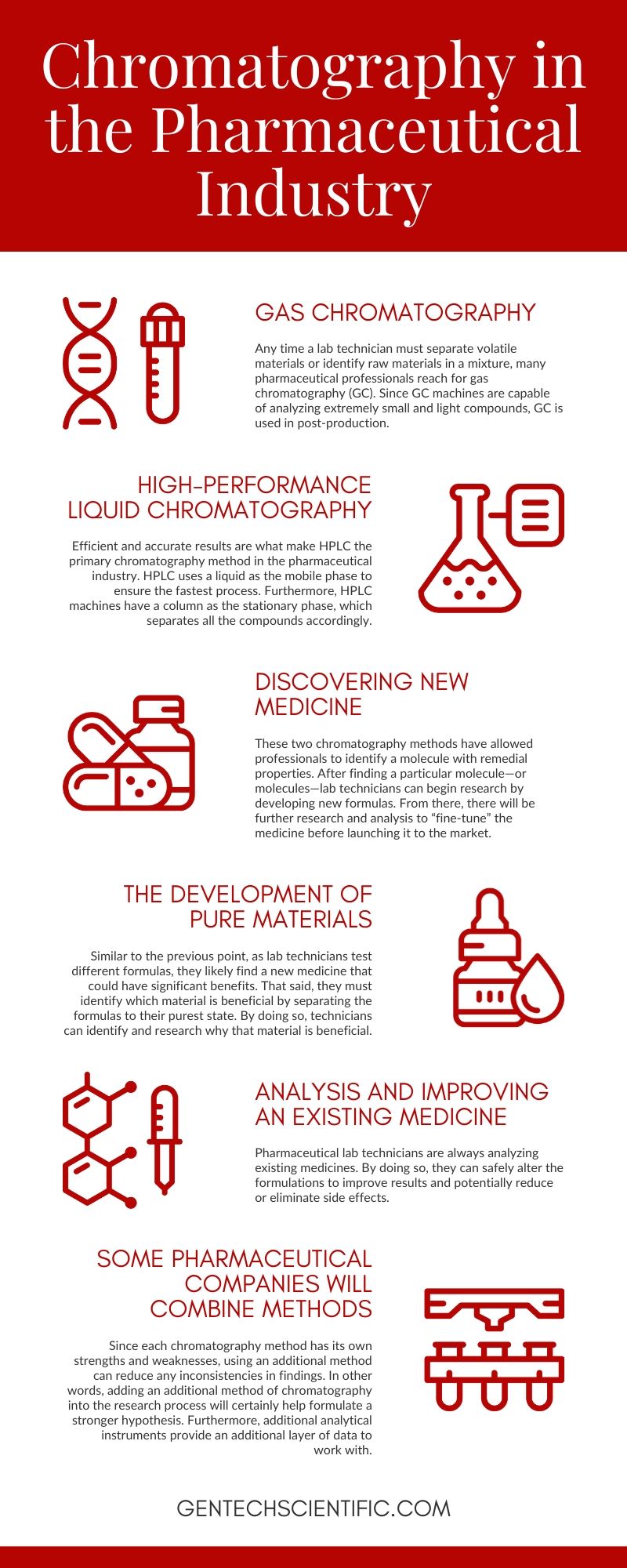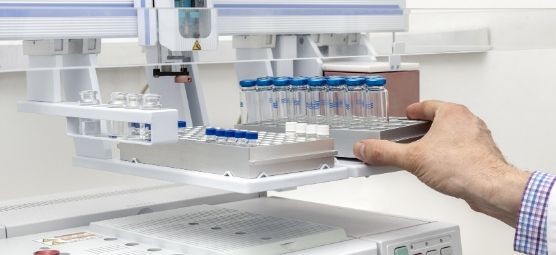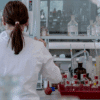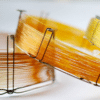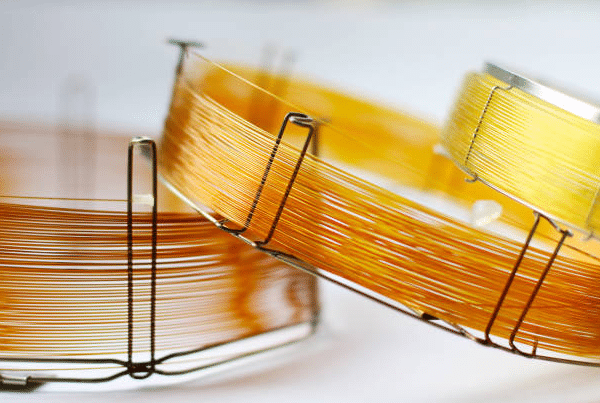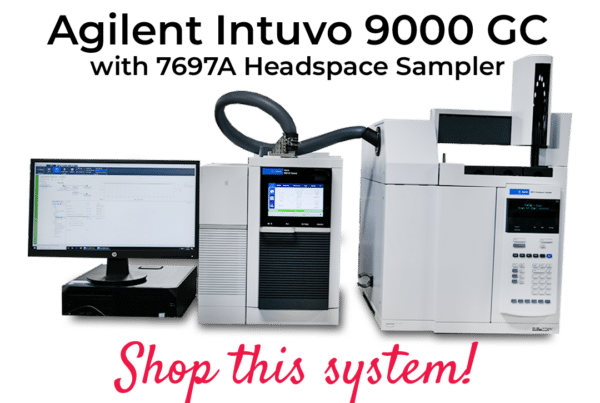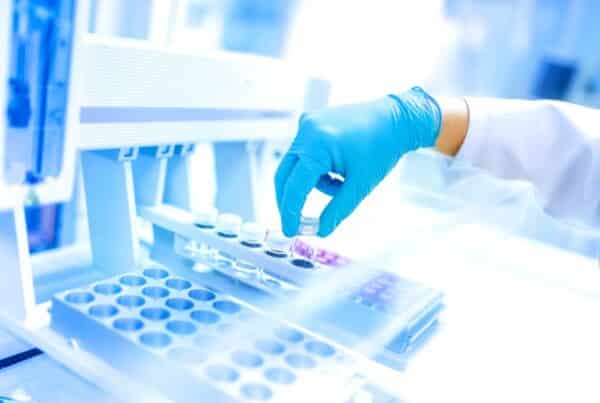We live in a society where there’s a medicine for almost anything, hence the rise in Big Pharma, increased research, and consistent growth in pharmaceutical employment. All these patterns beg the question: how do pharmaceutical professionals conduct research and safely manufacture medicine? One factor that plays a major role is chromatography and its different types. In fact, chromatography also helps ensure safe products because the process allows lab technicians to separate mixtures into their purest state. However, there are more applications of chromatography in the pharmaceutical industry. Continue reading to learn more.
Gas chromatography
Any time a lab technician must separate volatile materials or identify raw materials in a mixture, many pharmaceutical professionals reach for gas chromatography (GC). Since GC machines are capable of analyzing extremely small and light compounds, GC is used in post-production. In other words, GC is a standard process during quality control. However, identifying volatile impurities is the primary use for GC within the pharmaceutical industry.
High-performance liquid chromatography
The most common chromatography methods used in the pharmaceutical industry are both liquid chromatography (LC) and high-performance liquid chromatography (HPLC). However, efficient and accurate results are what make HPLC the primary chromatography method in the pharmaceutical industry. HPLC uses a liquid as the mobile phase to ensure the fastest process. Furthermore, HPLC machines have a column as the stationary phase, which separates all the compounds accordingly.
If there is ever an issue with a particular medicine, locating the problem as quickly as possible is vital to the health of patients. HPLC machines offer several benefits, two of which are efficiency and ease of use. These machines allow lab technicians to work quickly, without requiring excessive training. As long as the operator follows the initial process, the machine will handle the rest.
Discovering new medicine
These two chromatography methods have allowed professionals to identify a molecule with remedial properties. After finding a particular molecule—or molecules—lab technicians can begin research by developing new formulas. From there, there will be further research and analysis to “fine-tune” the medicine before launching it to the market. Of course, launching a new pharmaceutical into the market is not that simple. Each and every pharmaceutical company is held to an extremely high standard by the FDA, which leads to its own complications and, of course, further research.
The development of pure materials
Similar to the previous point, as lab technicians test different formulas, they likely find a new medicine that could have significant benefits. That said, they must identify which material is beneficial by separating the formulas to their purest state. By doing so, technicians can identify and research why that material is beneficial. From here, pharmaceutical professionals can make educated arguments for their hypothesis, and potentially launch a new pharmaceutical drug.
Analysis and improving an existing medicine
To reiterate, there seems to be a pill for almost anything on the market nowadays. That said, pharmaceutical lab technicians are always analyzing existing medicines. By doing so, they can safely alter the formulations to improve results and potentially reduce or eliminate side effects. However, in order to properly analyze a product that a patient would receive, lab techs must reverse the process and work backward in order to analyze the final product. Using chromatography––typically HPLC––is one of the steps in a several step process.
Alternatively, the worst-case scenario for any pharmaceutical company is issuing a recall. Once the company and the FDA decide to pull the pharmaceutical drug from the market, the research and analysis begin. However, time is not on their side for several reasons. First, the company answers to shareholders, and those individuals typically expect profit over anything else. Second, even with side effects, many patients depend on the medicine for their wellbeing. All that said, lab technicians need to analyze the recalled medicine as quickly as possible. To find a solution efficiently, pharmaceutical companies will often rely on HPLC, as it’s the fastest method to get a result.
Some pharmaceutical companies will combine methods
While this isn’t as common, especially when finding a solution to a recall, combining chromatography methods can be helpful. Since each chromatography method has its own strengths and weaknesses, using an additional method can reduce any inconsistencies in findings. In other words, adding an additional method of chromatography into the research process will certainly help formulate a stronger hypothesis. Furthermore, additional analytical instruments provide an additional layer of data to work with. In fact, mass spectrometry (MS) has become an increasingly popular tool to use during research and analysis, and it would be unwise to refrain from having an MS machine on hand.
The bottom line is that laboratories are held to an extremely high standard, and they’re responsible for every product that leaves their testing facilities. However, because of the nature of the industry and the societal effect of medicine, pharmaceutical labs are held to an even higher standard. Luckily, pharmaceutical companies recognize these standards and do everything in their control to meet them. That includes having quality lab equipment to meet the demands, standards, and research requirements to be a successful pharmaceutical company. Luckily, there are ways for companies to update their lab equipment that will benefit the company, shareholders, and most importantly, the end-users.
We recognize the importance of chromatography in the pharmaceutical industry, and as a trusted supplier of expertly refurbished used lab equipment, GenTech Scientific is ready to supply your company. Our team of experts takes pride in offering high-quality GenTech-certified refurbished lab equipment. We bring used machines back to life as if they just left the factory—plus, we sell them at a fair price. Not to mention, since our team does the refurbishing in-house, we can offer personalized customer support because we/em> refurbish your machine. Our team has integrity and looks forward to what they do each and every day, and we strive to see our customers succeed. We believe our proven track record of being a successful and trustworthy business for over twenty years has a lot to say. If your lab wants to upgrade your equipment, don’t waste your resources on brand-new equipment when refurbished equipment is available. Contact us today for more information.
